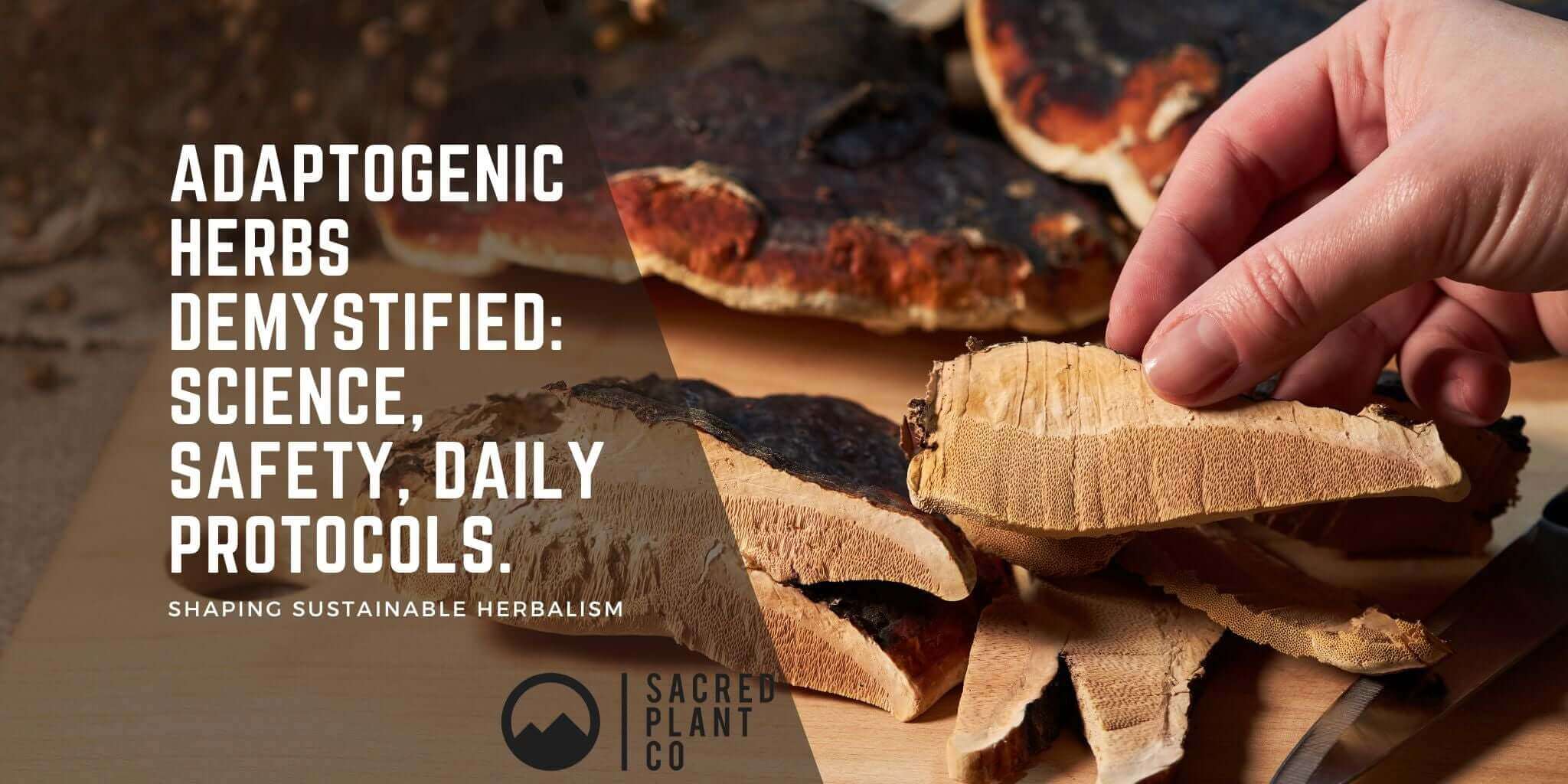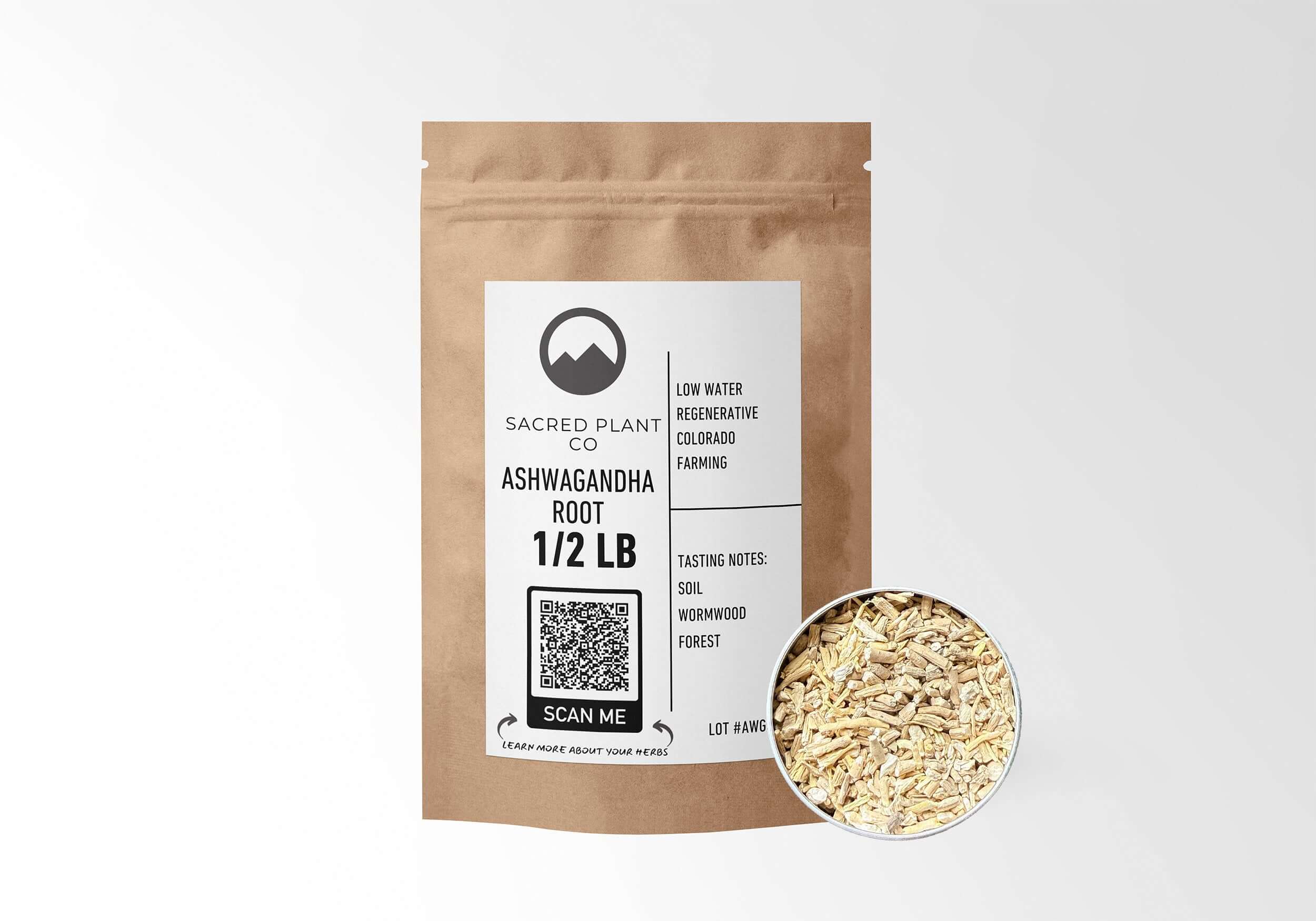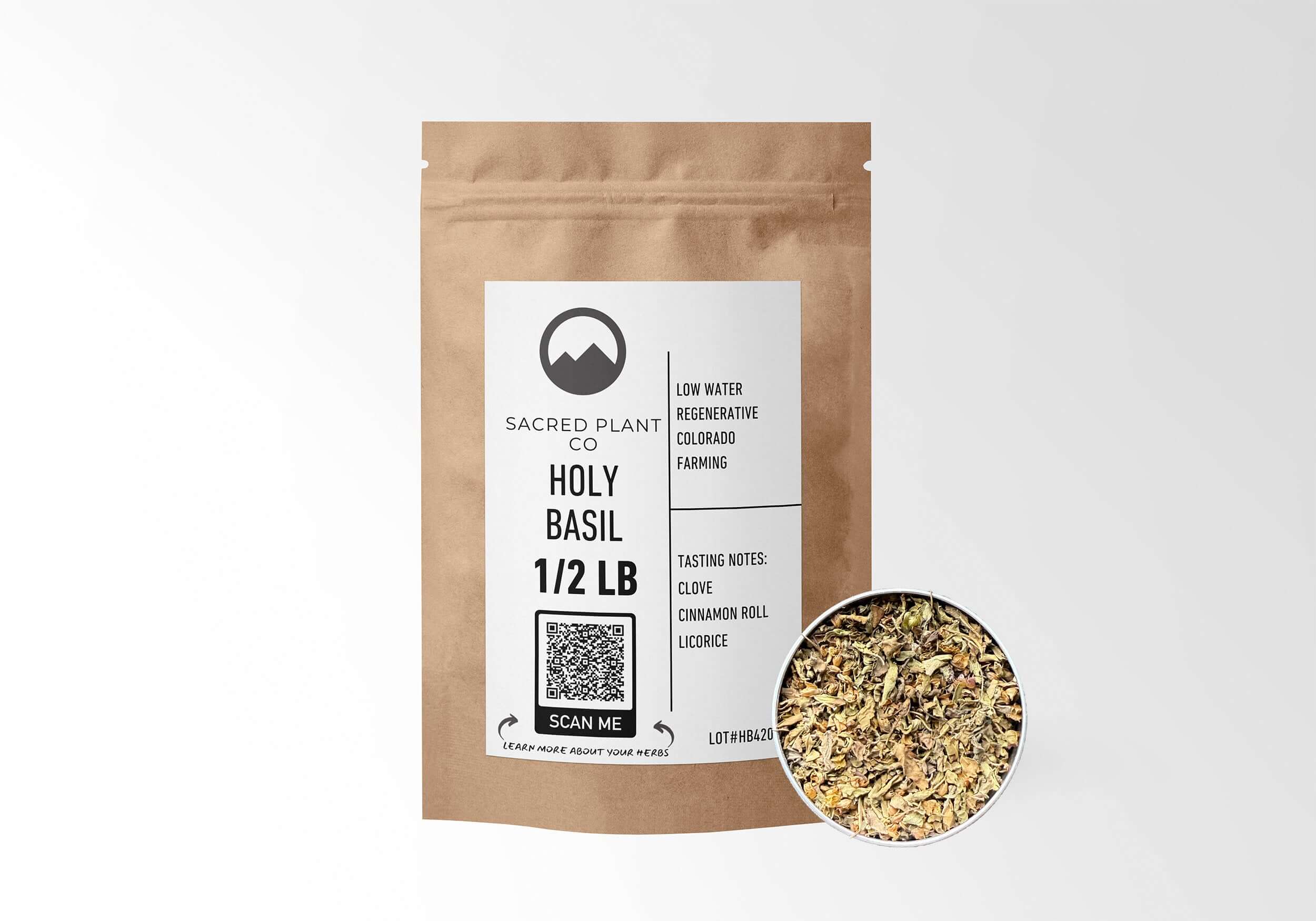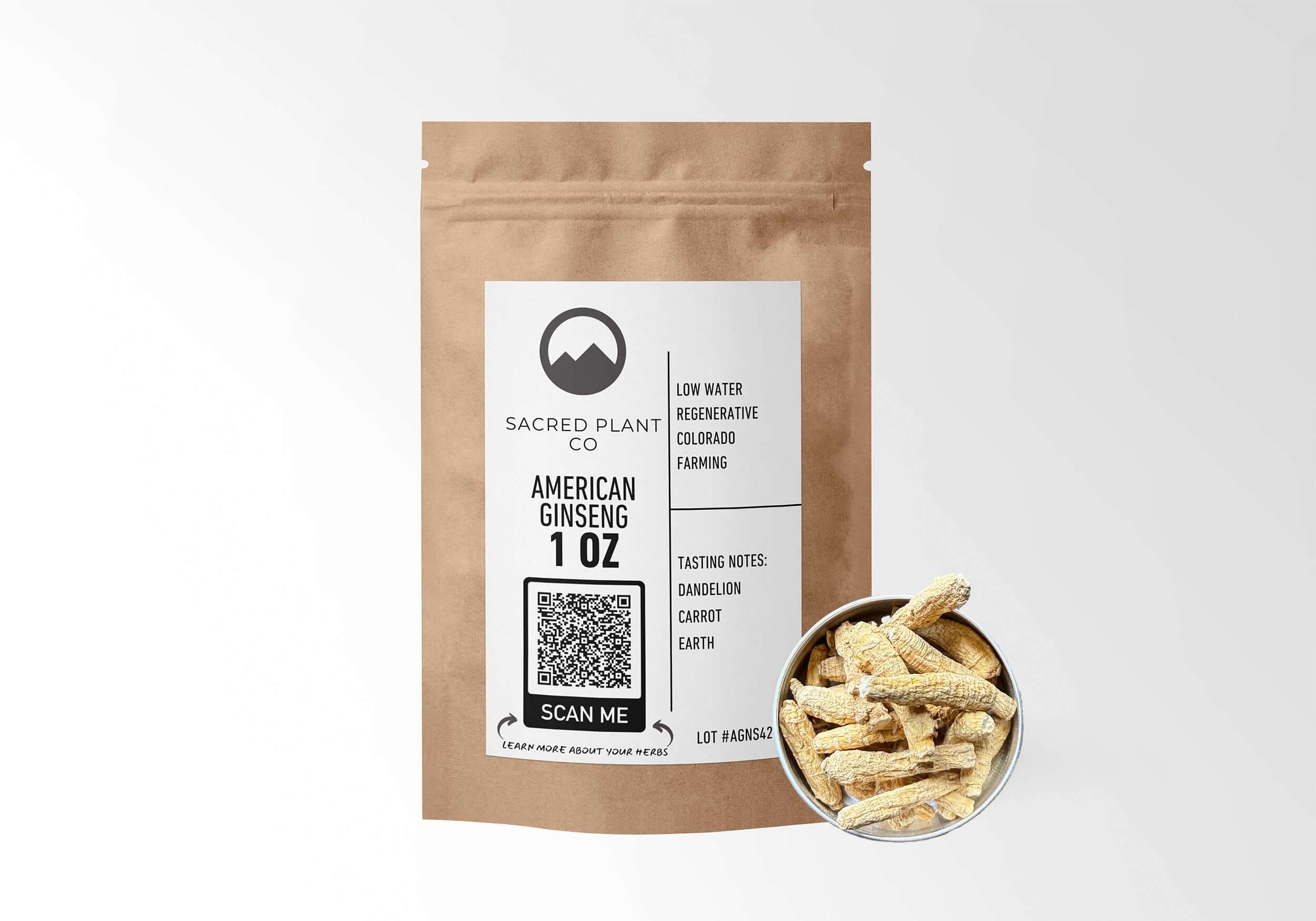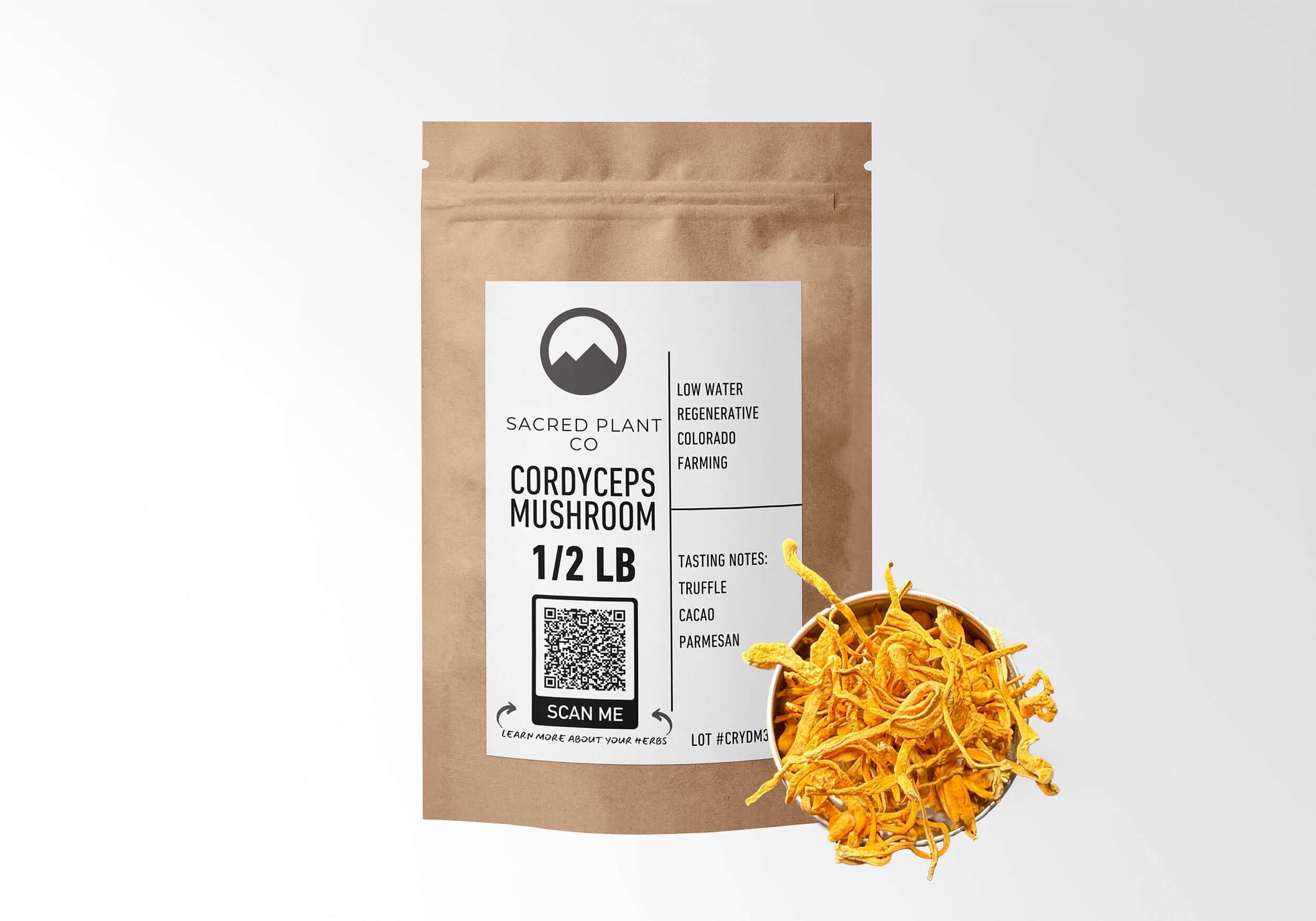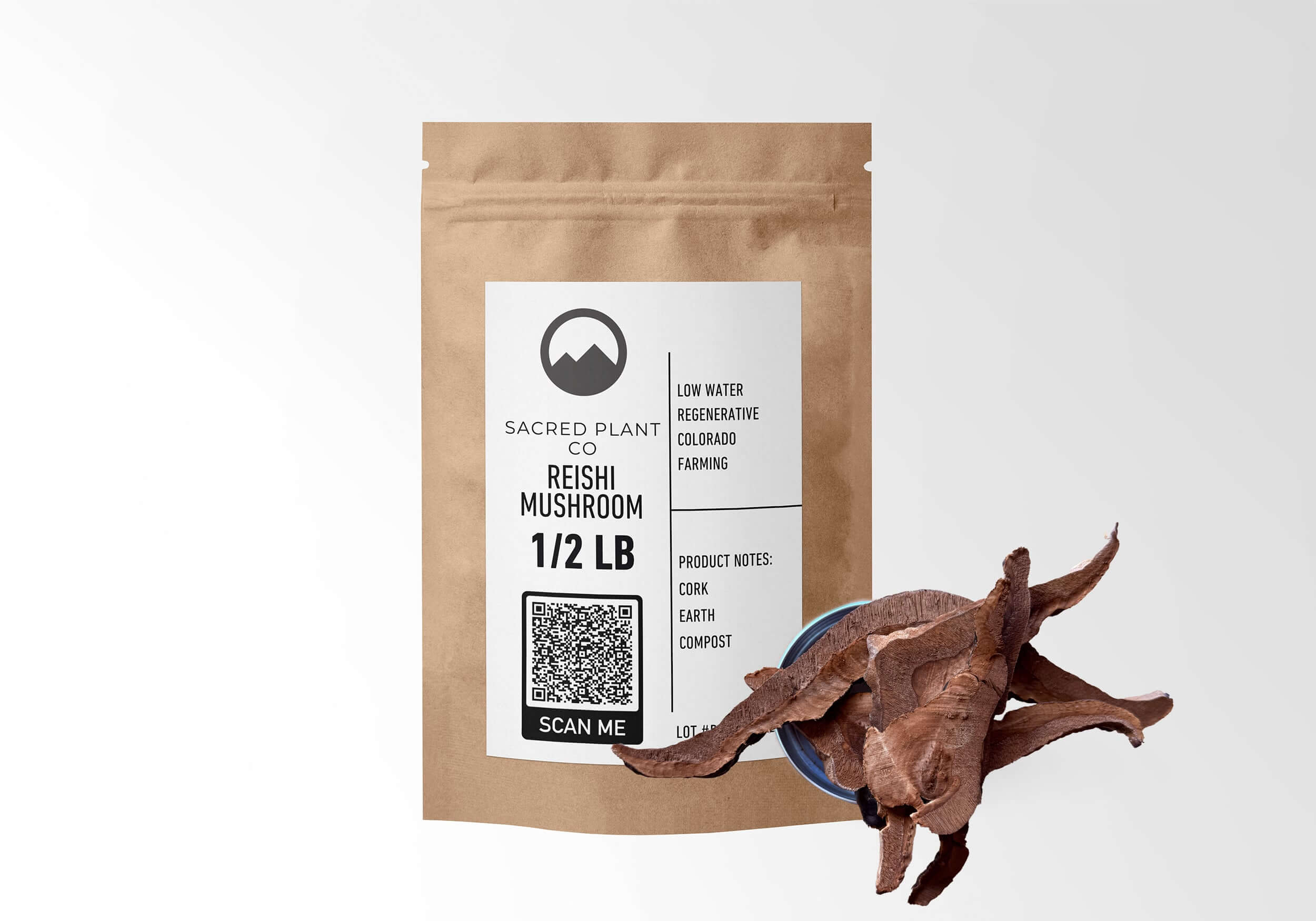Adaptogenic Herbs Demystified
Stress has become a 24‑hour background hum, emails ping at midnight, caffeine props up tired mornings, and our bodies quietly burn through reserves meant for real emergencies. Adaptogenic herbs offer a calmer path forward. These rare botanicals help the body adjust to pressure rather than simply masking it, nudging hormones and immune signals toward balance without a crash. In this guide we'll show you what science really says about adaptogens, how to avoid the safety pitfalls hidden in wellness hype, and how to build a day‑to‑day protocol you can trust. Every recommendation comes from herbs we grow with Korean Natural Farming practices, so you can feel the difference that living soil and careful harvesting make.
Adaptogens Decoded: What They Are—and What They’re Not

“Adaptogen” isn’t just a trendy buzzword, it has a precise origin rooted in serious pharmacological science. The term was first defined in 1969 by Soviet scientist Dr. Israel Brekhman, who was searching for plant-based compounds that could help cosmonauts endure the physical and mental stress of space travel. His criteria were strict, and only a handful of herbs ever qualified.
To be considered a true adaptogen, an herb must meet three foundational principles:
-
Non‑specific action – It must help the body resist a broad range of physical, chemical, and biological stressors.
-
Normalizing influence – It should bring the body back toward homeostasis, balancing what’s too high or too low (e.g., cortisol levels).
-
Non‑toxic at normal doses – It must not cause harm or excessive disruption to bodily systems.
That’s a high bar, and it immediately excludes many so‑called “adaptogenic” herbs floating around wellness blogs. For example, while turmeric and chamomile are deeply beneficial, they don’t meet these specific criteria.
Modern science has refined our understanding, focusing on how these herbs modulate the HPA axis (the hypothalamic-pituitary-adrenal system), the central driver of our stress response. When this system is chronically overstimulated, it contributes to fatigue, brain fog, poor immunity, and metabolic dysfunction. True adaptogens help regulate this axis, not by turning it off, but by recalibrating its sensitivity.
Only about 15 botanicals have enough clinical and historical evidence to be considered true adaptogens by both the original Soviet criteria and modern scientific standards. These include:
-
Ashwagandha (Withania somnifera)
-
Rhodiola (Rhodiola rosea)
-
Eleuthero (Eleutherococcus senticosus, formerly known as Siberian ginseng)
-
Reishi mushroom (Ganoderma lucidum)
-
Holy basil (Tulsi) (Ocimum sanctum)
-
Schisandra (Schisandra chinensis)
-
Panax ginseng
-
American ginseng (Panax quinquefolius)
-
Shilajit
-
Licorice root (Glycyrrhiza glabra)
-
Cordyceps
-
Maca root (Lepidium meyenii)
-
Guduchi (Giloy) (Tinospora cordifolia)
-
He shou wu (Fo-ti) (Polygonum multiflorum)
-
Sea buckthorn (Hippophae rhamnoides)
Each one operates through a distinct mechanism—some modulate cortisol, others enhance mitochondrial energy output or buffer neurotransmitter fluctuations. But all share a singular trait: helping your body respond to stress in a more intelligent, balanced way—without overstimulation or sedation.
Sacred Plant Co grows several of these time-tested allies using regenerative Korean Natural Farming methods, ensuring that their adaptogenic potential is supported not just by science, but by the health of the soil they grow in.
The Stress Axis—How Adaptogens Work

At the core of every adaptogen’s magic is one vital system: the HPA axis—short for the hypothalamic-pituitary-adrenal axis. This trio of endocrine glands governs how your body perceives and responds to stress. Whether you’re dodging a deadline or stuck in traffic, the HPA axis signals the release of cortisol and adrenaline, mobilizing energy to help you cope. In moderation, this response is lifesaving. But under chronic pressure, it becomes corrosive.
This is where adaptogens step in—not to block the stress response, but to modulate it. Think of them as skilled diplomats, smoothing over hormonal overreactions and recalibrating your internal feedback loops.
HPA Axis Modulation in Plain English
Instead of triggering or sedating like stimulants or relaxants, adaptogens help your body normalize. If cortisol is too high, they help bring it down. If energy is depleted, they can help restore vitality—without causing a spike and crash. This dynamic balancing act is what sets adaptogens apart from nearly every other class of herbal remedy.
Key Phytochemicals That Drive the Effect
Each adaptogen contains unique phytochemicals responsible for its effects. A few key examples include:
-
Withanolides in ashwagandha — modulate cortisol and GABA receptors
-
Salidroside and rosavin in rhodiola — enhance resilience to fatigue
-
Beta-glucans in reishi — support immune modulation and nervous system tone
-
Eugenol and ursolic acid in tulsi — offer anti-inflammatory and neuroprotective actions
These compounds don’t just reduce stress symptoms—they help rewire how your body reacts to stress in the first place.
Snapshot of Clinical Evidence
Modern research continues to confirm what traditional systems of medicine have long known: true adaptogens help regulate the body’s response to stress without causing sedation or overstimulation. Here are some of the most compelling clinical studies supporting their effects:
-
Ashwagandha
In a double-blind, placebo-controlled study, 64 participants with chronic stress saw a 27.9% reduction in cortisol levels after 60 days of high-concentration ashwagandha extract. Anxiety and fatigue markers also improved significantly.
📄 Chandrasekhar et al., 2012 – Indian Journal of Psychological Medicine (Full Text) -
Rhodiola rosea
A 28-day study on medical interns showed significant improvements in mental fatigue, memory, and overall well-being, with no reported side effects—highlighting Rhodiola’s role in cognitive resilience under stress.
📄 Spasov et al., 2000 – Phytomedicine (PubMed abstract) -
Reishi (Ganoderma lucidum)
A placebo-controlled human trial in breast cancer survivors found that reishi spore powder significantly improved sleep quality and reduced fatigue, while also modulating immune markers.
📄 Gao et al., 2012 – Evidence-Based Complementary and Alternative Medicine (Full Text) -
Tulsi (Holy Basil)
A pilot human trial demonstrated that daily tulsi leaf extract significantly reduced symptoms of stress, poor sleep, forgetfulness, and exhaustion over a 6-week period.
📄 Bhattacharyya et al., 2008 – Nepal Medical College Journal (Full Text)
Each of these studies reinforces what traditional healers have practiced for centuries: adaptogens do not suppress symptoms—they build internal resilience. The real win isn’t just feeling better for an hour—it’s reshaping your body’s response to stress from the inside out.
Meet the Core 5: Nature’s Most Trusted Adaptogens
Of all the herbs that qualify as true adaptogens, these five stand out—for their deep cultural roots, evidence-backed benefits, and daily usability. We grow or source each one with intention, using Korean Natural Farming (KNF) and regenerative soil practices that breathe life into the plants we offer. This is conscious herbalism, from seed to sip.
Ashwagandha (Withania somnifera)
Tradition: A foundational herb in Ayurveda for over 3,000 years, ashwagandha has long been used to restore energy, calm the mind, and balance stress hormones.
Science: Studies show significant reductions in cortisol, improved sleep, and decreased anxiety with consistent use. Full Study →
Protocol: Simmer 1–2 teaspoons of our cut & sifted root for 15–20 minutes or steep in hot water to create a soothing tonic.
🔗 Shop Ashwagandha Root (Cut & Sifted)
Tulsi (Holy Basil, Ocimum sanctum)
Tradition: Considered sacred in India and known as the “Queen of Herbs,” tulsi is cherished for its heart-opening, mind-centering, and immune-supportive qualities.
Science: Clinical studies support tulsi’s ability to reduce stress, enhance cognition, and protect against inflammation and oxidative damage. Full Study →
Protocol: Brew 2–3 grams of dried tulsi leaves into a fragrant tea, ideal for both morning clarity and evening wind-down.
🔗 Shop Tulsi Leaf Tea
American Ginseng (Panax quinquefolius)
Tradition: Valued in both Indigenous North American and Chinese herbal systems, American ginseng is cooling, calming, and deeply restorative.
Science: Research highlights its benefits for blood sugar balance, immune modulation, and mental stamina—making it ideal for burnout recovery. Study Example →
Protocol: Simmer 1–2 grams of dried root into a tonic or use in herbal broths. Best taken in the morning or midday.
🔗 Shop American Ginseng Root
Cordyceps (Cordyceps militaris)
Tradition: Originally wild-harvested on high-altitude plateaus, cordyceps has long been used as a vitality tonic in Tibetan and Chinese medicine.
Science: Known to enhance ATP production, oxygen utilization, and physical stamina, cordyceps is a go-to for endurance, libido, and lung support. Study Example →
Protocol: Use 1–2 grams daily of dried fruiting bodies, brewed into tea, infused into broth, or added to your wellness stack.
🔗 Shop Cordyceps Militaris
Reishi (Ganoderma lucidum)
Tradition: Known in Daoist medicine as the “Mushroom of Immortality,” reishi has been used for centuries to calm the spirit, nourish longevity, and deepen meditation.
Science: Reishi is rich in beta-glucans, which regulate immune response, improve sleep architecture, and support nervous system tone. Full Study →
Protocol: Simmer 1–2 grams of dried slices for at least 30 minutes in water to make a decoction, or use in soups and night-time tonics.
🔗 Shop Reishi Mushroom Slices
These are the herbs we reach for, day after day, not for a quick fix, but for long-term resilience. At Sacred Plant Co, each one is grown or selected with traceable, intentional care. We don’t believe in shortcuts. We believe in powerful plants, clean soil, and small-batch integrity you can taste and feel.
Adaptogens are widely praised for their gentle, non-toxic nature, and for most people, they are remarkably well-tolerated. But “gentle” doesn’t mean universally appropriate. Like all powerful plant allies, adaptogens deserve respect, intentional use, and awareness of how they might interact with your unique biology.
Who Should Use Caution or Consult a Professional
While our adaptogens are safe for most healthy adults, you should speak with a qualified herbalist or healthcare provider before starting a daily protocol:
-
Pregnant or breastfeeding individuals: Herbs like ashwagandha and cordyceps may influence hormone levels and lack adequate safety data in pregnancy. Tulsi and reishi are sometimes used traditionally, but not all sources agree, always check with a provider.
-
Autoimmune conditions: Reishi, cordyceps, and tulsi may stimulate immune function. If you’re managing an autoimmune disease or on immunosuppressant medications, consult a doctor first.
-
People on medications for blood sugar, blood pressure, or mood: Adaptogens like American ginseng, ashwagandha, and tulsi can lower blood sugar or interact with SSRIs, benzodiazepines, or thyroid medications. Monitoring and dosage adjustments may be necessary.
-
Children and adolescents: Most adaptogenic protocols are developed for adult physiology. Use in minors should be supervised by a knowledgeable practitioner.
Quality Matters: Why Source is Everything
Most adverse reactions to adaptogens don’t come from the herbs themselves, but from how they’re grown, harvested, or processed.
-
Pesticide contamination, improper drying, or adulteration with fillers can compromise safety.
-
Many low-cost powdered products are standardized with solvents or extracted at high heat, stripping away the full-spectrum benefits, and sometimes introducing harsh residues.
That’s why we never compromise. This isn’t just about quality, it’s about trust. You should know what’s going in your body, and where it came from.
Respect the Process: More Isn’t Better

Adaptogens aren’t quick fixes or performance enhancers to be “stacked” for intensity. Their brilliance lies in balance, taken daily in modest, consistent doses, they offer cumulative benefits over time.
If you’re new to adaptogens, start with one herb. Notice how your body responds. Build from there. The goal isn’t to do more, it’s to do better, with less stress.
Frequently Asked Questions
1. Do adaptogens raise or lower cortisol?
Both, depending on what your body needs. That’s what makes adaptogens unique. Unlike stimulants or suppressants, adaptogens modulate your stress response. For example, if cortisol is too high due to chronic anxiety, herbs like ashwagandha or reishi may help bring it down. If cortisol is low due to burnout, ginseng or cordyceps can support healthy elevation.
How long before I feel results?
Most people notice subtle shifts, better sleep, calmer mornings, improved stamina, within 7–10 days of daily use. Full adaptogenic effects build gradually over 3–6 weeks of consistent intake. These herbs don’t mask symptoms; they help rewire how your body responds to stress.
Should I cycle adaptogens?
Not necessarily. Unlike stimulants, adaptogens don’t create dependency or blunt receptor sensitivity. Many can be taken continuously. However, if you’re using a specific herb for a targeted effect (e.g., American ginseng for energy), a week off every few months can help you reconnect with your baseline and reevaluate your needs.
Are adaptogens safe with antidepressants or medications?
Some adaptogens, especially ashwagandha and tulsi, may influence serotonin, dopamine, or GABA pathways. If you’re taking SSRIs, benzodiazepines, or thyroid medications, consult your healthcare provider before introducing adaptogens. They may be compatible, but should be used intentionally, not casually.
What makes Sacred Plant Co adaptogens different?

Our herbs are grown or sourced with regenerative Korean Natural Farming (KNF) practices that enrich the soil microbiome, eliminate chemical inputs, and maximize the plant’s natural resilience. We hand-harvest at peak potency and small-batch dry to retain aroma, color, and phytonutrient integrity. You won’t find irradiated, overprocessed powders here—only living herbs, grown with purpose.
Myths & Marketing Traps: What Most Brands Get Wrong About Adaptogens
Adaptogens have become a buzzword—and with popularity comes distortion. At Sacred Plant Co, we believe in calling out the confusion so you can trust what’s in your hands. Here's what most marketing gets wrong—and what you need to know before buying into the hype.
Myth #1: “Everything is an adaptogen.”
No, it’s not.
Only about 15 botanicals in the world meet the actual scientific criteria for being a true adaptogen. Just because a plant reduces stress doesn’t make it adaptogenic. Chamomile? Helpful, yes. Adaptogen? No.
→ Truth: True adaptogens must be non-toxic, non-specific, and help normalize stress responses—this is a tightly defined group, not a mood herb free-for-all.
Myth #2: Adaptogens work instantly.
Some companies promise “zen in 20 minutes” with powdered drink mixes. That’s not how these herbs work.
→ Truth: Adaptogens build resilience over time. Most benefits come from consistent daily use, not one-off doses. Think months, not minutes.
Myth #3: More herbs = more benefits.
You’ll see products crammed with 10+ adaptogens in a single capsule or tea bag. But high counts don’t equal high effectiveness.
→ Truth: Combining too many herbs can dilute potency or even create opposing effects. Quality and dosage matter far more than variety. In most cases, 1–2 thoughtfully chosen adaptogens work better than a flashy list.
Myth #4: All adaptogens are safe for everyone.
Wellness marketing often glosses over the fact that adaptogens are biologically active. That means they can interact with medications, hormones, and immune function.
→ Truth: Adaptogens should be used with intention—especially if you’re pregnant, on medications, or managing a chronic condition. Always research or consult a professional.
Myth #5: “Standardized extract” means better quality.
Not always. Many standardized extracts are processed with harsh solvents or high heat, stripping away synergistic compounds.
→ Truth: Sacred Plant Co offers whole-form, KNF-grown herbs, hand-harvested and dried in small batches to preserve the entire plant intelligence, not just one isolated molecule.
Final Thoughts: Resilience Doesn’t Come in a Capsule
Adaptogens aren’t about hacking your body or forcing performance. They’re about remembering how to respond instead of react. They help you root into balance, build endurance for the long game, and soften the sharp edges of daily stress—without sedating your spirit or overclocking your mind.
At Sacred Plant Co, we grow and source adaptogens with reverence—for the land, the plant, and the person who receives it. Every root and leaf we offer is the result of soil-building practices, hands-on harvesting, and a refusal to compromise on quality.
Whether you’re exploring adaptogens for the first time or deepening your plant protocol, let your choices be intentional. Choose herbs that are grown in living soil, not industrialized greenhouses. Choose protocols that align with your body, not your feed. And choose brands that don’t just follow the trend—but honor the tradition.


